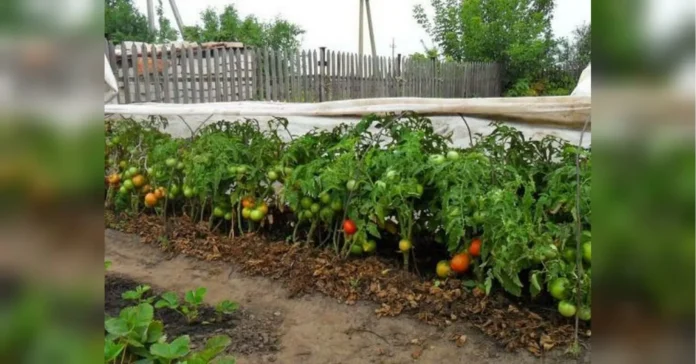Eggplants and potatoes are two popular vegetables that are often grown in home gardens and on farms. Both of these plants are members of the nightshade family, along with tomatoes, peppers, and other common vegetables. However, despite their similarities, eggplants and potatoes can also share similar diseases and pests, making it important to avoid planting them together in the same garden bed.
One of the main reasons why eggplants and potatoes should not be planted together is due to their susceptibility to the same diseases. Both of these plants can be affected by blight, a fungal disease that can spread quickly and cause significant damage. Blight can be transmitted through soil, water, and even wind, making it easy for the disease to spread from one plant to another. If eggplants and potatoes are planted in close proximity, they can easily infect each other with blight, leading to a loss of crops.
In addition to blight, eggplants and potatoes can also be affected by other common diseases such as verticillium wilt, fusarium wilt, and bacterial wilt. These diseases can cause wilting, yellowing of leaves, and stunted growth, ultimately resulting in a lower yield or complete loss of crops. These diseases can also stay in the soil for several years, making it important to rotate crops and avoid planting susceptible plants together.
Aside from diseases, eggplants and potatoes can also attract similar pests, such as Colorado potato beetles, flea beetles, and aphids. These pests can easily move from one plant to another, especially if they are planted closely together. They can also spread diseases to the plants, further increasing the risk of damage and loss of crops. By planting eggplants and potatoes in separate areas, it can help to reduce the likelihood of pests infesting both plants and causing damage.
Furthermore, eggplants and potatoes have similar growth habits and nutrient requirements. This means that if they are planted together, they will compete for the same resources, such as water and nutrients from the soil. This can result in stunted growth and a lower yield for both plants. By planting them separately, each plant can have enough space and resources to grow and thrive.
Another important reason to avoid planting eggplants and potatoes together is due to the risk of cross-pollination. Both of these plants are capable of cross-pollinating with each other, which can result in hybrids that may not produce desirable fruits. For example, if a potato plant cross-pollinates with an eggplant, the resulting fruit may not taste like a potato or an eggplant, making it unfit for consumption. This can be a waste of time and effort for gardeners who are looking forward to harvesting their desired crops.
In addition to the potential negative effects on the crops, planting eggplants and potatoes together can also make it challenging to manage and control diseases and pests. If the plants are mixed together, it can be difficult to identify which plant is affected and to apply the appropriate treatment. By separating them, it can make it easier to monitor and address any issues that may arise, leading to healthier and more productive plants.
In conclusion, while eggplants and potatoes may seem like a perfect pairing in terms of taste and cooking, they should not be planted together in the garden. Their susceptibility to similar diseases and pests, competition for resources, and risk of cross-pollination make it important to keep them separate. By following this practice, gardeners can ensure a healthier and more productive harvest of both eggplants and potatoes.

